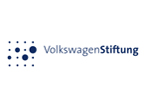The digitalization and platformization of societal communication is currently changing many different realms such as democracy, media, finance, and culture. In the science system, these technological changes are not only altering the modes of knowledge presentation, but also the ways of (quantified) (e-) valuation and performance measurement. These processes take place in a phase of deep transformation in the relationship between science and society which is intensely discussed in various discourses about the uses of science in modern societies.
Against this backdrop, the project aims at investigating the modes and effects of the digitalization of scholarly communication in the context of the changing societal environments of science. We intent to explore: 1) the discourses on scholarly communication and academic identity in the digital age, 2) how digitalized scholarly communication is valued through measures and metrics, 3) how the changing values and affordances of scholarly communication affect academic identities, 4) and how such changes affect the organizational and professional uses of digital scholarly communications and its data.
The primary research goal of this project is to explore the ways by which the socio-technical as well as social forces of digitalization affect and restructure the field of scholarly communication and impact on the formation and display of academic identities. This entails several research questions:
- How are academic and scholarly communication toward non-academic spheres maintained, disturbed, or transformed by the digitalization process?
- How far is the change of the digitalized scholarly communication subfield-specific? Do the disciplines’ different epistemic cultures and different forms of social organization lead to specific patterns of digital presence?
- How do societal expectations regarding the contribution of science to the solution of societal problems benefit from the digitalization of scholarly communication?
- How do these processes modify the construction of value in academia and the formation of academic identities?
These questions will be tackled by deploying a multi-method research design, combining investigations into the discourses of scholarly communication with in-depth case studies of scholarly self-presentation and communication.



